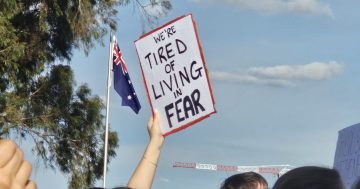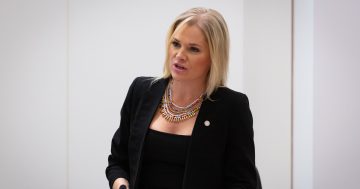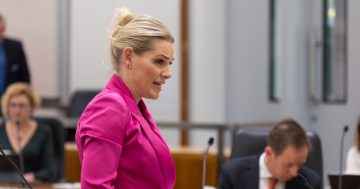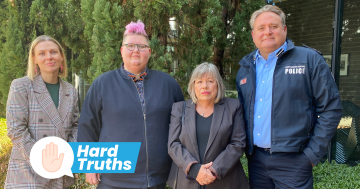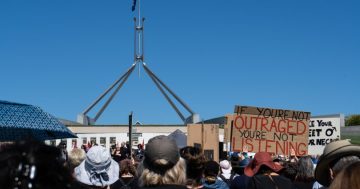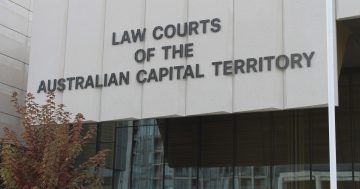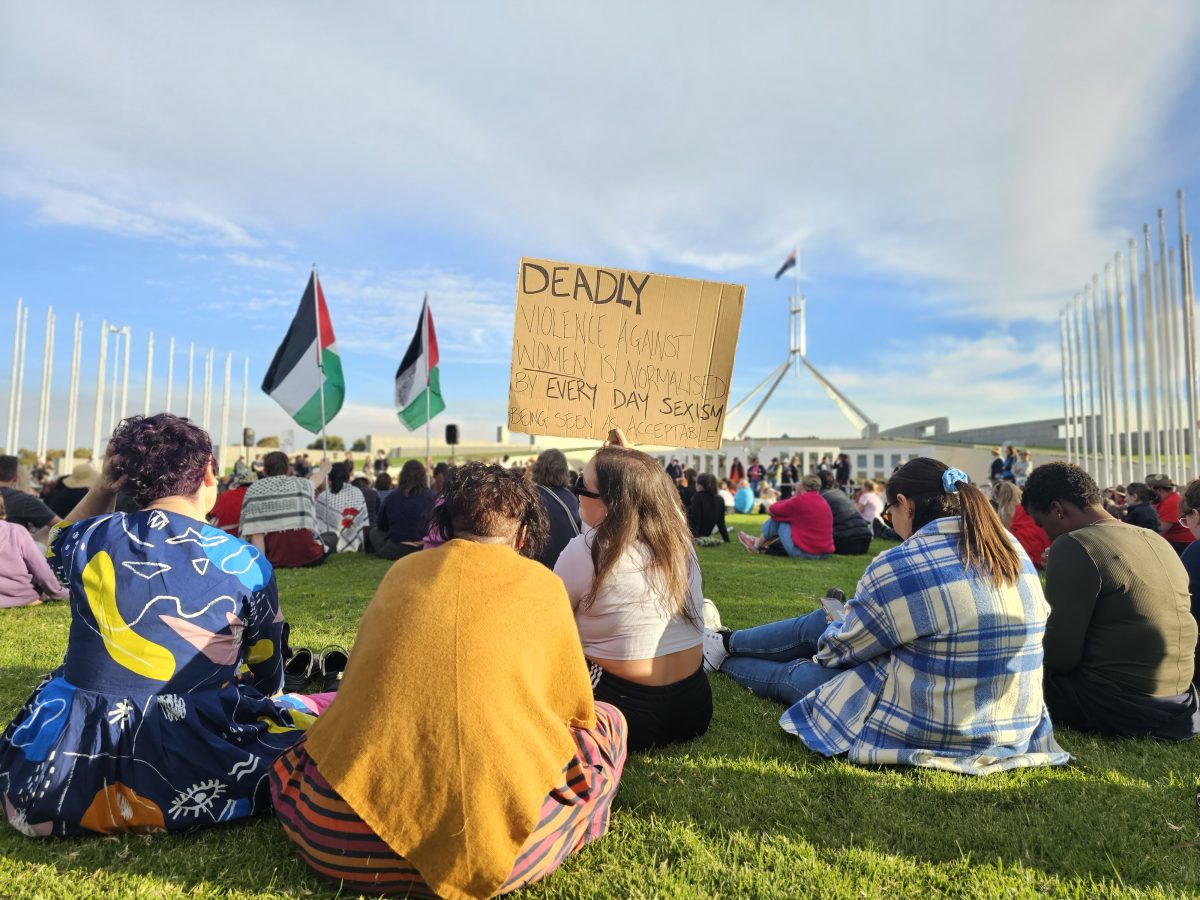
The ACT Government has provided in-principle support to criminalise coercive control but an education campaign needs to happen first. Photo: Hayley Nicholls.
A community coercive control education campaign could be up and running within six months in the ACT, according to the Domestic Violence Crisis Service (DVCS).
CEO Sue Webeck said the organisation has had many conversations with the Territory outlining the need to educate all sections of the community about what constitutes coercive control before it is criminalised.
“DVCS is very clear that criminalising coercive control is not the immediate answer. It’s not a quick fix,” she said.
“We need to invest in support, education and training those people who would be responding to coercive control in our community.”
DVCS has not been engaged in any work around a coercive control education campaign specifically brokered or funded by the government. However, agencies have pivoted to increase education and awareness anyway, on top of the services they already provide.
Ms Webeck said the knowledge was there, it just needed the funds.
“A community-based campaign could happen relatively quickly, within a six-month timeframe … and we could definitely be seeing some impact in the ACT community within nine months,” she said.
“It’s not overly complicated in a jurisdiction this size to bring everyone to the table.
“There’s no doubt we could build something for the community pretty quickly … the government just needs to decide what to do in that regard.”
Specific training for police and other frontline services to ensure they have the capability to respond “appropriately” is expected to take longer, as well as upskilling community providers so that everyone is on the same page as to what constitutes coercive control.
The Canberra Liberals raised the issue of a coercive control education campaign during the May Legislative Assembly sitting period.
Prevention of Domestic and Family Violence Shadow Minister Leanne Castley moved a private members bill on Tuesday (14 May) calling on the government to implement such a program.
“Criminalising coercive control in the ACT and educating the community about this form of abuse is a critical step towards cultural change and saving lives,” she said.
“The community is desperately calling for cultural change and a stronger response to domestic and family violence. An education campaign on coercive control needs to begin as soon as possible.”
Her motion noted the education campaign should outline that coercive control is “incompatible” with respectful relationships, teach people about unacceptable coercive behaviours and how to identify them, highlight how coercive control can impact anyone in an intimate or domestic relationship, and be accessible to Indigenous and culturally and linguistically diverse communities.
Ms Castley said she wished she had added a specific timeframe to her motion for such a program to begin but didn’t explain why she hadn’t.
It also called on the government to commit additional funding and resources to frontline domestic and family violence services in the upcoming ACT Budget.
Ms Castley said this step was needed so the Territory could get on with criminalising coercive control.
“Coercive control leads to assaults and murder. Addressing coercive control will save lives, prevent tragedy and hold families together,” she said.
“An education campaign on coercive control needs to complement criminalisation … the time to act is now.”
The ACT Government agreed with her calls for an education campaign but altered the funding commitment to “consider” additional resources so as not to pre-emptively signal any potential budget announcements.
Prevention of Domestic and Family Violence Minister Yvette Berry said she had received advice from stakeholders that the Territory needed to “go slow” on criminalisation.
“[We need to] take time to get this right … [we’ve been] warned of the potential unintended harms criminalising coercive control could have for Aboriginal and Torres Strait Islander people, as well as culturally and linguistically diverse communities,” she said.
“I’m very concerned about this potential negative impact.”
Ms Berry welcomed the intent of Ms Castley’s motion to establish an education campaign and that she looked forward to it being developed.
“I have the views of sector stakeholders and their concerns about criminalising coercive control, and if that meant I took the time to listen … then I’m happy to take that blame,” she said.
“Before considering law reform, we need to be focused on addressing the gaps in community education and frontline training. This is what the ACT Government has prioritised.”
No timeline was given on when a government-funded coercive control education campaign could happen.
Anyone impacted by sexual, domestic or family violence can contact 1800RESPECT on 1800 737 732 or Full Stop Australia on 1800 385 578.
Local support services include the Canberra Rape Crisis Centre on 6247 2525, the Domestic Violence Crisis Service (DVCS) on 6280 0900, and Victim Support ACT on 1800 822 272 or 6205 2022.
If this reporting has raised mental health concerns, call Lifeline on 13 11 14.












